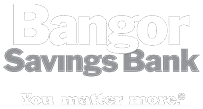
What Rewards Can You Get With A Credit Card?
There are three primary credit card rewards types: Points, Miles, and Cash Back.
- Points- Incentives that can be accumulated through purchases made with you credit card.
- Miles- The credit card is partnered with airlines and/or hotel chains to offer exclusive travel discounts.
- Cash Back- Earn a certain percentage of cash based on your spending.
Credit Card Point Rewards Programs
You can earn credit card points in various ways, which include:
- Spending a specific amount within a few months of starting a new account
- Making purchases
- Referring friends
Individual card programs may provide the same point amount across all purchases. Others will reward specific spending categories (i.e., restaurants, gas, groceries) with extra points. Typically $1.00 spent on the card will equal 1 point.
You can typically redeem your credit card points for things like:
- Merchandise
- Travel
- Gift cards
- Cashback
Sometimes, you can also redeem donations to charity or exclusive events. Each issuer provides a distinct range of choices and configures your redemption price settings. For instance, your points might be worth a penny when you put them towards travel. Then for cashback, they might be worth half a cent.
While individual issuers have their own redemption instructions, you can typically redeem your points by going to your online account and the issuer's reward center. This is where you will see your reward choices and their cost in points.
Travel Credit Card Reward Programs
With travel credit cards, you receive miles, points, and in some cases, cash. There are two primary types:
- Co-branded cards: These are branded with a hotel chain or airline. They usually let you redeem your rewards within a single loyalty program.
- General travel cards: These types of cards are bank-branded cards that offer rewards covering a whole range of travel costs.
For individuals looking to earmark vacation rewards, these types of cards could help and may provide extra benefits.
Cash Back Reward Programs
Rewards come in dollar form with a cash back card, not miles or points. You can redeem your rewards for:
- A gift card
- Credit on your statement
- Direct deposit to your bank account
- Check
Cashback cards do not typically charge an annual fee and redeeming the rewards is really simple.
Getting the Most From Your Credit Card Rewards Program
Before signing up for a new credit card be sure to examine their rewards program and assess whether it is the right fit for you. Credit card companies will often send applications straight to you in the mail, but that doesn’t always mean they are the most practical choice for you.
Here are some things to consider before choosing a new card:
- Align Your Interests and Your Rewards
Look to align your rewards program with your interests and goals. For instance if you are focused on budgeting, a card that provides cash back on basic things like filling your gas tank or shopping at the grocery store could be beneficial and align with your budgeting goals. If you are interested in travelling, a credit card that offers discounts at certain hotels or airlines could be a good match for you.Questions to ask yourself are:
- Does this rewards program offer gift cards to businesses or stores I am interested in making purchases at?
- Is the merchandise that I can purchase with my point’s items I would use?
- Do they offer cash back on purchases I make regularly?
- Does this rewards program partner with airlines and hotels that are in the areas I am interested in visiting?
- Do Some Comparison Shopping
Many large stores will ask you if you’d like to sign up for their store credit card and offering you an immediate discount on your current purchase if you do so. It is tempting to impulsively sign up for a new credit card when these offers and discounts are presented, however, it’s better to wait and take the time to compare similar credit card offers before committing.
Be wary of reward programs that try and entice you to spend more money, like those where you are required to meet a specific spending requirement within a short period. You might wind up spending more money than you normally would have. - Run Spending Through a Single Card
By narrowing the number of cards you use you can maximize the value of that card's rewards program. A good rewards program can become a great rewards program if you are wise in how you spend using the card. It’s important not to needlessly spend in an attempt to earn greater rewards, instead, use the rewards card to pay for your usual expenses. This way, you will get more out of your spending in the form of rewards.
To keep your credit card balance under control, you might wish to make weekly payments to avoid an unexpected bill at the end of the billing cycle.
Cash Back or Travel?
Selecting a rewards credit card will often mean choosing between travel benefits or cashback and there are many advantages to both. Cashback is easy to redeem and flexible. Miles or points offer you the chance to earn free vacations. These days, individual cards allow you to redeem rewards for travel or cash at the same value. However, if you are making a decision between the two, your lifestyle is really what you should consider.
Takeaway
There are a few essential things you need to consider when it comes to rewards cards or credit card points. You must decide whether you want a card with increased rewards in specific areas or a card with straight points across all of your purchases. Then base your decision on how you typically spend. Once you choose, regularly use your card – but not too much, so you can earn rewards and redeem them. Be sure you completely understand all your redemption options, particularly the value of your points for each.
Member FDIC
